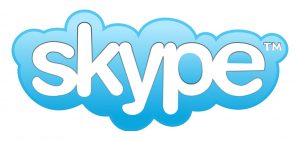According to a recent report, the success of SMEs is essentially like flipping a coin – there’s an estimated survival rate of 50%. This means that establishing a strong and profitable core business is more crucial than ever before.
Since survival is a major focus for SMEs, investment in other aspects that may not seem to have immediate trackable results on business performance are often highly scrutinised. But even when SMEs manage to survive and find their stride, becoming profitable without the help of marketing, content, public relations or social media, many decide to continue without these things. Why would they need them even if they are profitable? Let’s dive right in.
Marketing
With the view that only large, multinational organisations have dedicated marketing teams, many SMEs outright dismiss the idea of hiring dedicated marketing staff. If SMEs do have a staff member focused on marketing, the scope of that role is usually tied up with additional tasks, such as business development.
Without the attention and focus of a true marketing professional, marketing initiatives usually end up in the form of more traditional activities, such as developing collaterals or organising events, which often do not drive easily trackable business results. A dedicated marketer will be able to identify broader business issues and create solutions to fix them, whether that be an online lead generation, sales team support or employer brand management to help bring in the best talent.
Content
Content is on the radar for many organisations, but often only in the form of a few commissioned articles for the company website. The truth is that content has many more practical uses for a business than most business owners realise. Content can be presented in many ways – think text, infographics and videos – and have the ability to engage potential customers across a wide array of platforms, ranging from the company’s website to social media channels to content-led PR campaigns.
A singular piece of content, such as a research report, can be reworked into different pieces of satellite content, including infographics, toolkits and short, digestible videos that can be shared on different channels. Lead generation, client relationship management and sales support are all business-focused goals that can leverage content to deliver measurable results.
PR
Crisis management and spin-doctoring are often the first things that come to mind when thinking of public relations, but these functions are usually back of mind when it comes to successful businesses who are focused on growth.
Public relations can do much more than just clean up sticky situations. Good PR will play a key role in stakeholder management, putting the business in the midst of relevant discussions happening in the industry and the media, and positioning key people in the company as thought leaders. Strong PR can boost the visibility and credibility of the business and open new doors for the company in the process.
Social media
If you think that social media is simply a Facebook page for consumer brands to deal with angry posts, think again. Social media can act as a multi-platform ecosystem that can be used to engage with different types of audiences. By using specific targeting, businesses can reach new and relevant customers from literally all around the world.
From customer support and sales to employer branding and community management, every employee can learn to use social media in a way that influences the business, no matter if it’s a B2C and B2B operation. It’s important to establish goals and outline clear roles that each social media platform will play for the business, though; only then can a business truly start to see the benefits of a social media strategy.
Do you want to find out more about what marketing, content, PR and social media can do for your business? Drop us a line at [email protected]


 Last, but certainly not least, brand monitoring. Outsourcing your marketing function shouldn’t be a one-trick pony. A dedicated and proactive agency should be continually optimising your marketing efforts. The world is a competitive place for brands big and small, and it is crucial to lower your risk of market stagnation. Brands need to be up to speed, consistent, as well as creative with their ideas. Having a great marketing campaign but not the strategy and monitoring in place is a slippery slope for brands. However, an agency will constantly try new things to keep your business on trend to deliver agreed-upon goals.
Last, but certainly not least, brand monitoring. Outsourcing your marketing function shouldn’t be a one-trick pony. A dedicated and proactive agency should be continually optimising your marketing efforts. The world is a competitive place for brands big and small, and it is crucial to lower your risk of market stagnation. Brands need to be up to speed, consistent, as well as creative with their ideas. Having a great marketing campaign but not the strategy and monitoring in place is a slippery slope for brands. However, an agency will constantly try new things to keep your business on trend to deliver agreed-upon goals.